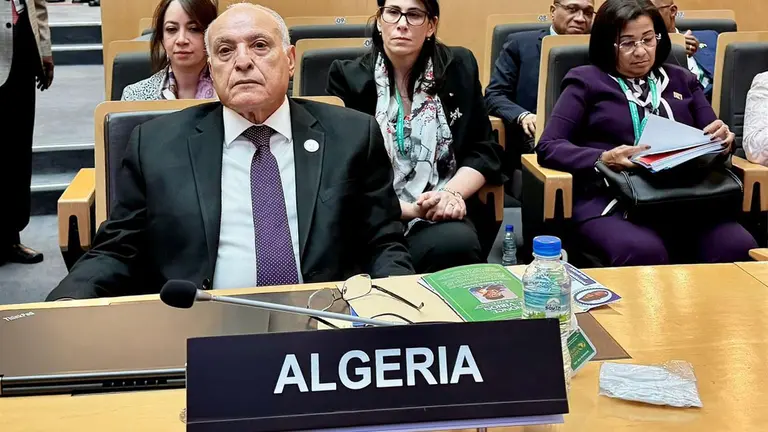
Algeria’s recent failure to secure a seat on the African Union’s Peace and Security Council (CPS) has exposed its increasingly desperate tactics to regain lost influence. Instead of accepting its diplomatic shortcomings and working towards constructive partnerships, Algiers has reverted to its old ways—leveraging financial incentives and political maneuvering to sway votes.
The Return of “Suitcase Diplomacy”
Faced with mounting rejection from African nations, Algeria has resorted to what can only be described as “suitcase diplomacy”—the discreet distribution of financial incentives to influence decision-making. As soon as the Algerian president arrived in Addis Ababa, reports emerged of mysterious “bags” making their way through hotel corridors in the Ethiopian capital. This practice, while not uncommon in diplomatic circles, raises serious ethical questions about the integrity of AU elections.
A Fleet of “Mediators” to Reverse the Tide
Having failed to secure a CPS seat, Algeria fears yet another humiliating defeat. In response, it has deployed an army of intermediaries tasked with one mission: securing votes through “persuasive” arguments—arguments that, more often than not, involve financial enticements. Instead of engaging in genuine diplomacy, Algeria continues to rely on coercion and manipulation to maintain its foothold in the African Union.
Prioritizing Corruption Over Genuine Cooperation
Rather than fostering constructive African partnerships that benefit all parties, Algeria persists in its strategy of blackmail and vote-buying. This approach not only damages its credibility but also undermines the very foundations of African unity. By prioritizing self-serving tactics over regional cooperation, Algiers risks alienating itself further from the continent’s emerging diplomatic landscape.
Algeria’s Undue Influence on the AU
For years, Algeria has exploited the African Union to serve its hegemonic ambitions, using the organization as a platform for its own political agenda. However, the growing resistance from African states signals a shift—a rejection of Algeria’s outdated strategies. By attempting to manipulate elections and decision-making processes, Algiers is stripping the AU of its legitimacy and hindering much-needed institutional reforms.
Algeria’s latest maneuvers reveal a nation struggling to maintain relevance in an evolving Africa. Instead of adapting to new diplomatic realities, it clings to an obsolete playbook—one that is increasingly failing to deliver results.




